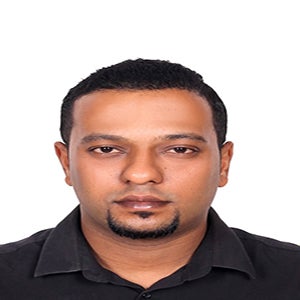From territories to narcotics: The altered face of gang violence

SHAH ALAM - Understanding the current volatile situation among underworld gang members in the Indian community in the country involves considering at least two elements: pre-drug penetration and post-drug penetration.
These two elements were crucial for unravelling the multi-layered issues behind the violence involving criminal offenders in the Indian community.
According to Assistant Superintendent K. Rajendran, involvement in violence in the country was not confined to one ethnic group; Indians, Chinese, and Malays were involved in varying ways.
However, he noted that in some parts of the country, Indian Malaysian involvement in violence might have exceeded other ethnic groups.
"Violence seems to be a function of class differentiation and not so much ethnic in character.
"Crime existed even during those days, but back then, crimes involving underworld gangs were all about territorial disputes, and so on.
"But the day drugs penetrated the country and became a means of their illicit activities, violence was redefined.
"Hardcore violence became attached to these gang members.
"From assault to murder to torching people, the list goes on," Rajendran said in the Sana Sini podcast recently aired.
He was responding to questions posed by former MIC Youth chief Senator Datuk Sivarraajh Chandran and political analyst Professor Datuk Dr P. Sivamurugan about a crime involving the Indian community in the podcast.
Rajendran also revealed that as the country evolved, there has been a drop in criminal activities involving the Indian community.
"Honestly, I am not sure if it's because the criminals decided to turn over a new leaf or if the law has materialised," he added.
In a related matter, Sivarraajh said, to put it very simply, Indian involvement in violence and other forms of social ills is a result of four decades of political, social, and economic neglect of the community by the government in power.
He also reiterated his previous calls in the last podcast expressing reservations about the concept of People's Housing Projects (PPR), citing social problems associated with it.
He proposed revisiting the social security net for the Indian community, stressing the need for collaborative efforts between agencies and the existing system.
"I would like to express my reservations about potential social challenges associated with concentrated living arrangements and call for exploring alternative housing solutions," Sivarraajh said.
To this, Rajendran said parenting and education were the main foundations that could address this issue from the root because students aged 14-15 years spend most of their time at home and school.
"Parenting is the main foundation, and education plays an important role because most of the time they spend at home and school.
"So, if something is missed out, it will affect their growing-up process.
"For the police, meanwhile, quality investigation is urged.
"Police investigation has evolved based on evidence-based probes.
"So, an upgraded and quality investigation will further address this issue.
"The police, in fact, have already evolved in the way they conduct a case.
"They have evolved from the old-school way," he said.
Rajendran made his career during the Bentong Kali case in the 1990s, where he was part of the investigative officers attempting to put an end to the sheer violence of gangland-style killings.
Bentong Kali, also known as P. Kalimuthu, has reportedly committed 17 murders between 1991 and 1993.
With a bounty of up to RM100,000 on his head, Kalimuthu's 'business' reportedly largely centered on drug production and trafficking, which courted rows or rivalry that ended in bloodbaths.
"I still remember the hunting days. Our superiors used to tell us to keep the guns on our thighs to always be on high alert. We arrested a lot of people during the operation," he said.
Kalimuthu was shot dead on June 11, 1993. It was learned that Kalimuthu was hiding at the flat for almost five months.














